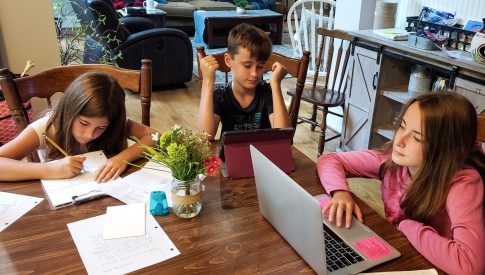Modern Studies - Broad General education (bGE) level 3/4 Index
Online Lessons for Students in Scotland learning Broad general education Modern Studies
- Skills
- Democracy
- Knowledge Questions
- Investigation
- Tips
Skills: These types of questions provide you with a variety of sources that you use to answer three different types of questions;
Support and opposing questions;
Options/recommendation questions;
Conclusion-based questions
Fake news – can you trust what you read? Before the advent of the internet, we knew where to find information: television, newspapers and libraries. But now, with a limitless world of information at our fingertips, the challenge is how to tell which information is trustworthy – and which isn’t. Misinformation is a growing issue.
Detecting bias: pupils learn the fundamentals of bias – phrases like “prejudiced opinion”, “one-sided point of view” and “specific inclination” help students simplify and understand what bias is.
Providing evidence that supports or opposes a view: an academic argument supports its claim with sound reasoning, research, and evidence such as facts, statistics, and quoted opinions from authorities on both sides of the argument.
Counterargument: an argument that is opposed to another argument.
Argument: an attempt to persuade someone of something, by giving reasons or evidence for accepting a particular conclusion.
Refute: to prove something (a statement, theory, claim, argument) or someone wrong.
Drawing conclusions from evidence: conclusions are opinions, judgments, or decisions that are formed based on a situation’s facts. A reader or observer collects information. Readers weigh the evidence. The evidence proves what is going to happen or the next logical step in the information series.
Making a decision: pupils learn to make decisions based on logically-derived information. Progress changes the way people live from decade to decade. Learn to make decisions based on stated facts. Learn to sift out facts from opinions and not make decisions based on opinions.
Democracy: a form of government in which the people have the authority to deliberate and decide legislation, or to choose governing officials to do so.
A basic introduction to the UK political system: the United Kingdom is both a parliamentary democracy and a constitutional monarchy. In a parliamentary democracy, citizens elect a legislative body called a parliament to represent their interests and carry out their will. This is one layer of the British government. Britain is also a constitutional monarchy, in which the monarch serves as head of state but is limited in power and must work in conjunction with the Parliament. Britain has three arms, or branches, of state: the legislative, which debates and passes laws; the executive, which carries out the laws and runs the country on a day-to-day basis; and the judicial, which enforces the laws.
Knowledge questions: this lesson section prepares the pupil for knowledge and trivia based questions
Using a formula to answer questions: these lessons include different types of questions at N5 Modern Studies and how to approach these questions using a formula.
Investigation: this lesson provides tips on how to approach finding sources and advice on how to ensure you are using the strongest sources.
Researching a topic: this lesson provides tips on how to approach finding sources and advice on how to ensure you are using the strongest sources.


"It's bright and colourful, easy to read, and extremely easy to use unlike most textbooks or online learning websites" Daisy, S3 PupilSign Up & Learn Today

